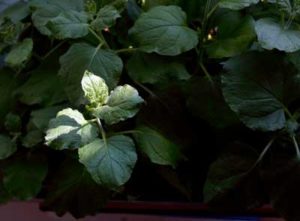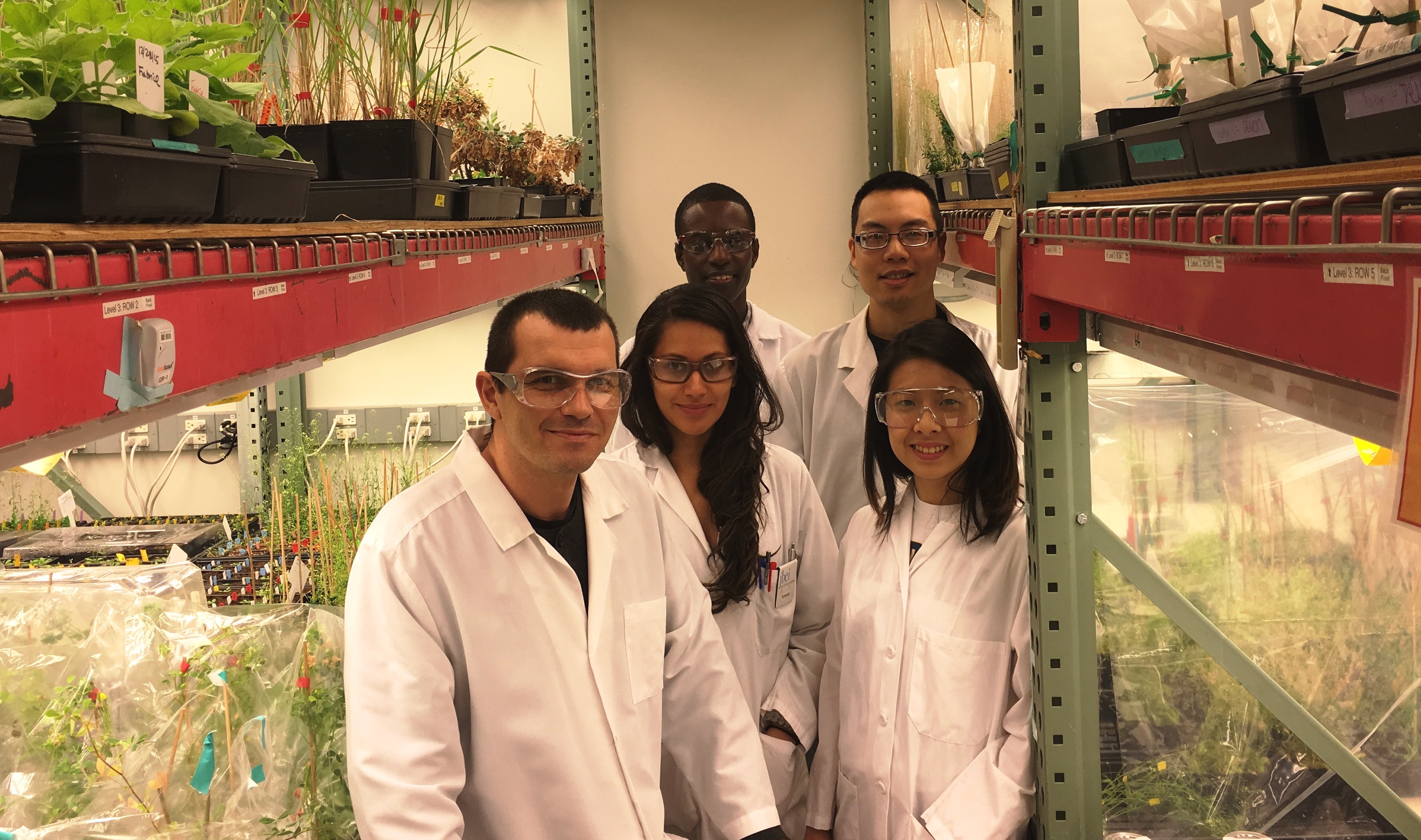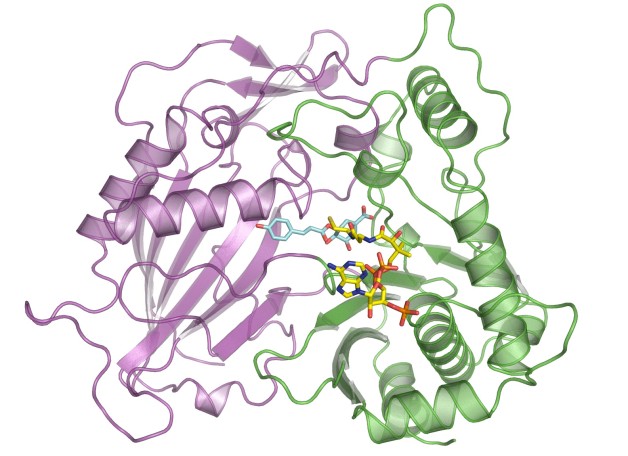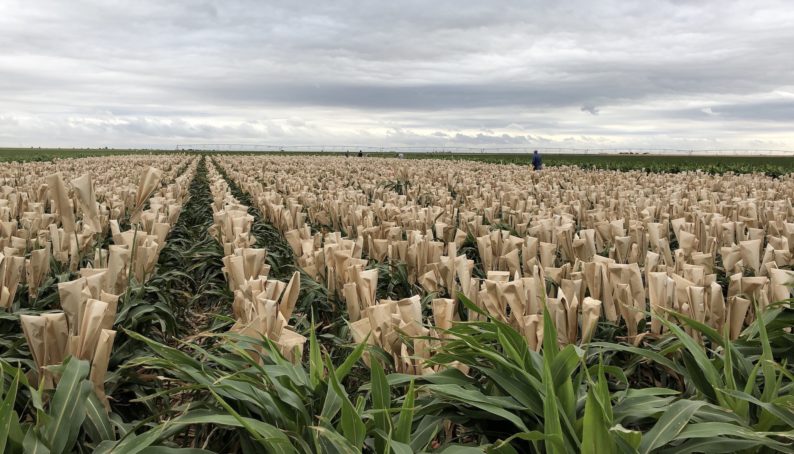Tailoring biomass composition in energy crops is critical to enable sustainable production of advanced biofuels and bioproducts. The Bioenergy Crop Engineering group focuses on the improvement of switchgrass, sorghum, and poplar to achieve this goal. We use synthetic biology to manipulate metabolic pathways and we leverage plant models to identify the most promising engineering strategies. Approaches include the modification of cell wall components such as lignin to facilitate downstream biomass deconstruction. Other strategies aim at producing important target chemicals in-planta to increase the value of plant biomass. In collaboration with the Life-cycle Economics & Agronomy Division at JBEI, the group evaluates the performance of engineered feedstocks under natural field conditions and their effects on plant-associated microbiomes. The group also determines the impact of the novel traits on the efficiency of biomass conversion in collaboration with JBEI’s Deconstruction and Biofuels & Bioproducts Divisions.
Projects
- Develop novel approaches to reduce lignin content and/or modify its composition in biomass
- Design metabolic pathways for the production of value-added chemicals in bioenergy crops
- Engineer microbes for the synthesis of plant-specific metabolites
- Engineer root systems to promote soil carbon sequestration
Featured Media
New routes to renewables: Speeding transformation of biofuel waste into wealth

Berkeley Lab researchers discover possible method to reduce cost of biofuels

New Way to Reduce Plant Lignin Could Lead to Cheaper Biofuels

Featured Publications
- “Enhanced microbial production of protocatechuate from engineered sorghum using an integrated feedstock-to-product conversion technology” Green Chemistry (2023)
- “Investigation of the effects of ternary deep eutectic solvent composition on pretreatment of sorghum stover” AIChE Journal (2023)
- “Field performance of switchgrass plants engineered for reduced recalcitrance” Frontiers in Plant Science (2023)
- “The Inducible Accumulation of Cell Wall-Bound p-Hydroxybenzoates Is Involved in the Regulation of Gravitropic Response of Poplar” Frontiers in Plant Science (2021)
- “Evaluation of engineered low-lignin poplar for conversion into advanced bioproducts” Biotechnology for Biofuels and Bioproducts (2022)
- “Biological funneling of aromatic phenolics from transgenic plants engineered to express the bacterial 3-dehydroshikimate dehydratase (qsuB) gene” Frontiers in Chemical Engineering (2022)
- “Engineering sorghum for higher 4-hydroxybenzoic acid content” Metab Engineering Communications (2022)
- “Expression of dehydroshikimate dehydratase in sorghum improves biomass yield, accumulation of protocatechuate, and biorefinery economics” ACS Sustainable Chemistry & Engineering (2022)
- “Low-abundance populations differentiate microbiome performance in plant cell wall deconstruction” Microbiome (2022)
- “Comparing in planta accumulation with microbial routes to set targets for a cost-competitive bioeconomy” PNAS (2022)
- “A new approach to zip-lignin: 3,4-Dihydroxybenzoate is compatible with lignification” New Phytologist (2022)
- “Overexpression of the rice BAHD acyltransferase AT10 increases xylan-bound p-coumarate and reduces lignin in Sorghum bicolor” Biotechnology for Biofuels and Bioproducts (2021)
- “Lignin synthesis and bioengineering approaches toward lignin modification” Advances in Botanical Research (2021)
- “Monolignol acyltransferase for lignin p-hydroxybenzoylation in Populus” Nature Plants (2021)
- “Engineered sorghum bagasse enables a sustainable biorefinery with p-hydroxybenzoic acid-based deep eutectic solvent” ChemSusChem (2021)
- “In-planta production of the biodegradable polyester precursor 2-pyrone-4, 6-dicarboxylic acid (PDC): Stacking reduced biomass recalcitrance with value-added co-product” Metabolic Engineering (2021)
- “Expression of a bacterial 3-dehydroshikimate dehydratase (QsuB) reduces lignin and improves biomass saccharification efficiency in switchgrass (Panicum virgatum)” BMC plant biology (2021)
- “Strategies for the production of biochemicals in bioenergy crops” Biotechnology for Biofuels (2020)
- “Influence of hydrocracking and ionic liquid pretreatments on composition and properties of Arabidopsis thaliana wild type and CAD mutant lignins” Renewable Energy (2020)
- “Phenolic cross-links: Building and de-constructing of the plant cell wall” Natural Product Reports (2020)
- “Deep eutectic solvent pretreatment of transgenic biomass with increased C6C1 lignin monomers” Frontiers in Plant Science (2019)
- “Approaches for More Efficient Biological Conversion of Lignocellulosic Feedstocks to Biofuels and Bioproducts”, ACS Sustainable Chemistry & Engineering (2019)
- “Integration of renewable deep eutectic solvents with engineered biomass to achieve a closed-loop biorefinery”, PNAS (2019)
- “Production of clovamide and its analogues in Saccharomyces cerevisiae and Lactococcus lactis”, Letters in Applied Microbiology (2019)
- “A screening method to identify efficient sgRNAs in Arabidopsis, used in conjunction with cell-specific lignin reduction”, Biotechnology for Biofuels (2019)
- “Conversion of depolymerized sugars and aromatics from engineered feedstocks by two oleaginous red yeasts”, Bioresource Technology (2019)
- “Methyl ketone production by Pseudomonas putida is enhanced by plant-derived amino acids”, Biotechnology and Bioengineering (2019)
- “Overexpression of a rice BAHD acyltransferase gene in switchgrass (Panicum virgatum L.) enhances saccharification“, BMC Biotechnology (2018)
- “Increased drought tolerance in plants engineered for low lignin and low xylan content”, Biotechnology for Biofuels (2018)
- “Production of muconic acid in plants”, Metabolic Engineering (2018)
- “Lignin Valorization: Two Hybrid Biochemical Routes for the Conversion of Polymeric Lignin into Value-added Chemicals”, Scientific Reports (2017)
- “SbCOMT (Bmr12) is involved in the biosynthesis of tricin-lignin in sorghum”, PLOS ONE (2017)
- “Exploiting members of the BAHD acyltransferase family to synthesize multiple hydroxycinnamate and benzoate conjugates in yeast”, Microbial Cell Factories (2016)
- “Expression of S-adenosylmethionine Hydrolase in Tissues Synthesizing Secondary Cell Walls Alters Specific Methylated Cell Wall Fractions and Improves Biomass Digestibility”, Frontiers in Bioengineering and Biotechnology (2016)
- “Exploiting The Substrate Promiscuity of Hydroxycinnamoyl-CoA:shikimate Hydroxycinnamoyl Transferase to Reduce Lignin”, Plant & Cell Physiology (2016)
- “Precursor-directed combinatorial biosynthesis of cinnamoyl, dihydrocinnamoyl, and benzoyl anthranilates in Saccharomyces cerevisiae”, PLOS ONE (2015)
- “Expression of a bacterial 3-dehydroshikimate dehydratase reduces lignin content and improves biomass saccharification efficiency”, Plant Biotechnology Journal (2015)
- “Lignin bioengineering”, Current Opinion in Biotechnology (2014)
- “Production of hydroxycinnamoyl anthranilates from glucose in Escherichia coli.”, Microbial Cell Factories (2013)
- “Biosynthesis and incorporation of side-chain-truncated lignin monomers to reduce lignin polymerization and enhance saccharification”, Plant Biotechnology Journal (2012)
- “Production of tranilast [N-(3′,4′-dimethoxycinnamoyl)-anthranilic acid] and its analogs in yeast Saccharomyces cerevisiae”, Applied Microbiology and Biotechnology (2011)
Featured Intellectual Property
- Modified plants and methods for producing modified lignin by modulating expression of acyltransferases
- Tissue specific reduction of lignin
- Lignification reduction in plants
- Host cells and methods for producing cinnamoyl anthranilate and analogs thereof
- Modified plants and methods for reducing cell wall methylation and recalcitrance
- Novel plants and methods for producing muconic acid
- Novel plants and methods for producing 2-pyrone-4, 6-dicarboxylic acid






